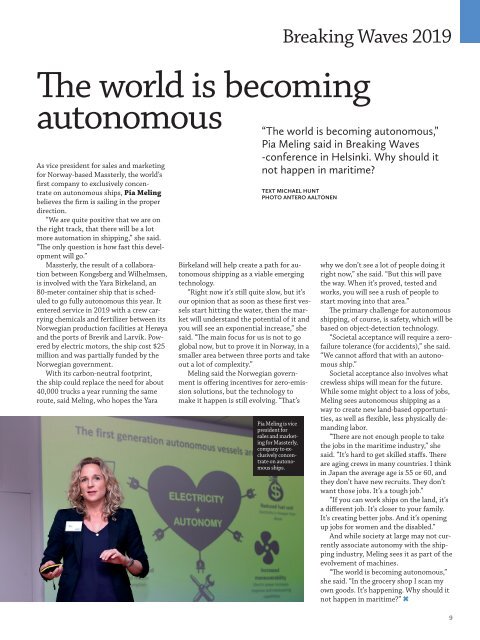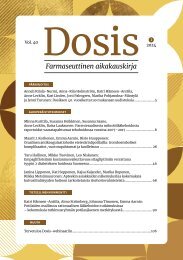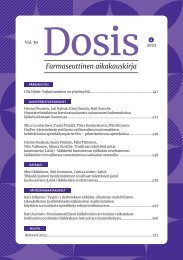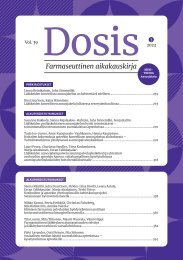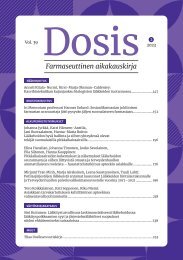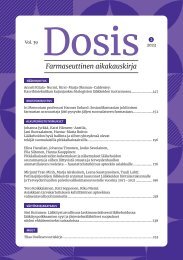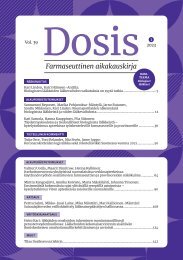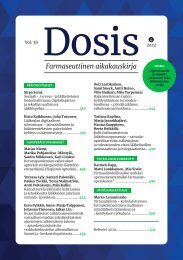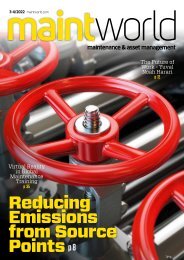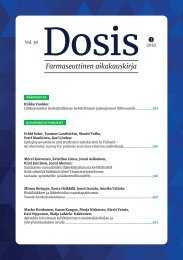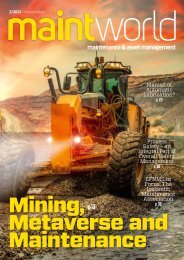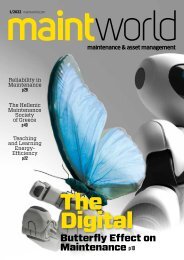You also want an ePaper? Increase the reach of your titles
YUMPU automatically turns print PDFs into web optimized ePapers that Google loves.
Breaking Waves 2019<br />
The world is becoming<br />
autonomous<br />
As vice president for sales and marketing<br />
for Norway-based Massterly, the world’s<br />
first company to exclusively concentrate<br />
on autonomous ships, Pia Meling<br />
believes the firm is sailing in the proper<br />
direction.<br />
“We are quite positive that we are on<br />
the right track, that there will be a lot<br />
more automation in shipping,” she said.<br />
“The only question is how fast this development<br />
will go.”<br />
Massterly, the result of a collaboration<br />
between Kongsberg and Wilhelmsen,<br />
is involved with the Yara Birkeland, an<br />
80-meter container ship that is scheduled<br />
to go fully autonomous this year. It<br />
entered service in 2019 with a crew carrying<br />
chemicals and fertilizer between its<br />
Norwegian production facilities at Herøya<br />
and the ports of Brevik and Larvik. Powered<br />
by electric motors, the ship cost $25<br />
million and was partially funded by the<br />
Norwegian government.<br />
With its carbon-neutral footprint,<br />
the ship could replace the need for about<br />
40,000 trucks a year running the same<br />
route, said Meling, who hopes the Yara<br />
Birkeland will help create a path for autonomous<br />
shipping as a viable emerging<br />
technology.<br />
“Right now it’s still quite slow, but it’s<br />
our opinion that as soon as these first vessels<br />
start hitting the water, then the market<br />
will understand the potential of it and<br />
you will see an exponential increase,” she<br />
said. “The main focus for us is not to go<br />
global now, but to prove it in Norway, in a<br />
smaller area between three ports and take<br />
out a lot of complexity.”<br />
Meling said the Norwegian government<br />
is offering incentives for zero-emission<br />
solutions, but the technology to<br />
make it happen is still evolving. “That’s<br />
“The world is becoming autonomous,”<br />
Pia Meling said in Breaking Waves<br />
-conference in Helsinki. Why should it<br />
not happen in maritime?<br />
TEXT MICHAEL HUNT<br />
PHOTO ANTERO AALTONEN<br />
Pia Meling is vice<br />
president for<br />
sales and marketing<br />
for Massterly,<br />
company to exclusively<br />
concentrate<br />
on autonomous<br />
ships.<br />
why we don’t see a lot of people doing it<br />
right now,” she said. “But this will pave<br />
the way. When it’s proved, tested and<br />
works, you will see a rush of people to<br />
start moving into that area.”<br />
The primary challenge for autonomous<br />
shipping, of course, is safety, which will be<br />
based on object-detection technology.<br />
“Societal acceptance will require a zerofailure<br />
tolerance (for accidents),” she said.<br />
“We cannot afford that with an autonomous<br />
ship.”<br />
Societal acceptance also involves what<br />
crewless ships will mean for the future.<br />
While some might object to a loss of jobs,<br />
Meling sees autonomous shipping as a<br />
way to create new land-based opportunities,<br />
as well as flexible, less physically demanding<br />
labor.<br />
“There are not enough people to take<br />
the jobs in the maritime industry,” she<br />
said. “It’s hard to get skilled staffs. There<br />
are aging crews in many countries. I think<br />
in Japan the average age is 55 or 60, and<br />
they don’t have new recruits. They don’t<br />
want those jobs. It’s a tough job.”<br />
“If you can work ships on the land, it’s<br />
a different job. It’s closer to your family.<br />
It’s creating better jobs. And it’s opening<br />
up jobs for women and the disabled.”<br />
And while society at large may not currently<br />
associate autonomy with the shipping<br />
industry, Meling sees it as part of the<br />
evolvement of machines.<br />
“The world is becoming autonomous,”<br />
she said. “In the grocery shop I scan my<br />
own goods. It’s happening. Why should it<br />
not happen in maritime?” ✖<br />
9


